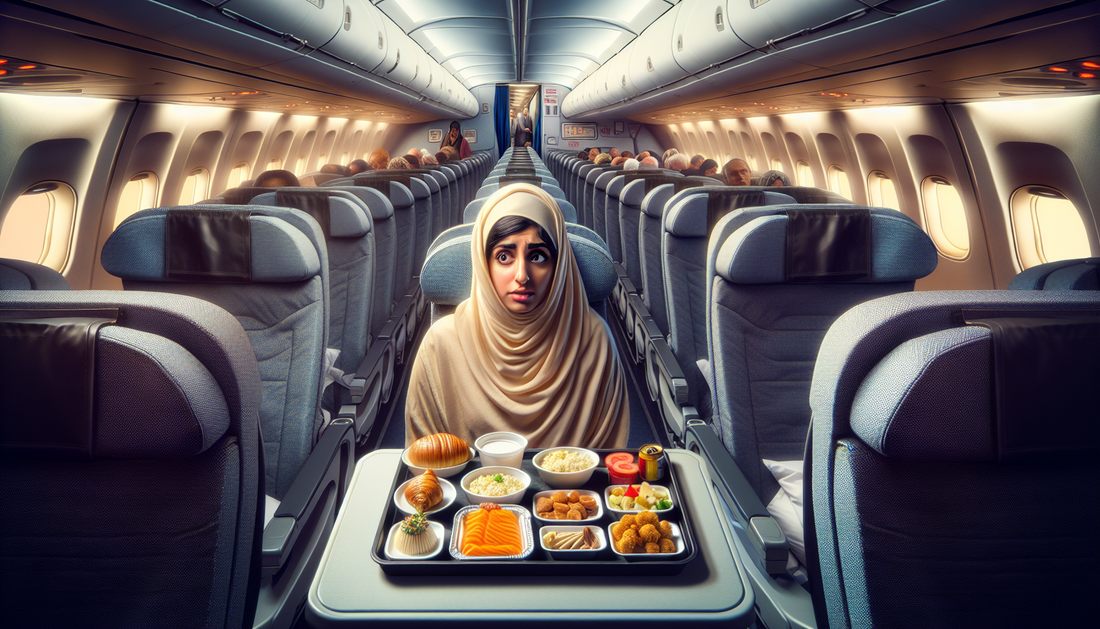
Why Skipping In-Flight Meals Could Enhance Your Travel Experience
WonderBites Food&TravelShare
Skipping in-flight meals might be the key to a more enjoyable travel experience, say frequent flyers and travel experts. Amid the hustle of air travel, making this simple choice can impact your journey positively.
- ✈️ Travelers on long-haul flights with airlines like Emirates, Delta, and Singapore Airlines have noted that forgoing in-flight meals can lead to a more restful and less bloated trip.
- 🕰️ Meal services often disrupt sleep with bright lights and increased noise in the cabin. Choosing to skip meals can help passengers stay relaxed and catch up on much-needed rest.
- 🍏 Nutritionists like Dr. Jane Smith emphasize the benefits of fasting while flying, as it encourages hydration and reduces the risk of bloating and indigestion.
- 🧳 Enhancing comfort by bringing personal snacks can offer both a healthier and tastier alternative, with less sodium and preservatives than typical airplane meals.
- 🌍 Travelers in time zones that cross continents could minimize jet lag by aligning eating patterns with the destination, starting during the flight.
Overall, bypassing in-flight meals can result in a more comfortable journey, helping to unlock a refreshed arrival at your destination.
When you board a plane, especially for long-haul flights, it's almost a given that you're going to be offered a meal. It's part and parcel of the in-flight experience. However, there's an interesting school of thought suggesting that you might want to skip that tray of airplane food. While it may seem counter-intuitive, given the excitement of travel and the hunger that can accompany long journeys, there are several compelling reasons to avoid in-flight meals, ranging from health concerns to the simple quest for fresher dining options.
One of the most significant factors involved in the debate around airplane food is the high altitude at which it's consumed. At cruising altitudes of around 35,000 feet, the pressure inside an aircraft cabin significantly affects human senses, particularly taste and smell. According to nutrition expert Professor Charles Spence from the University of Oxford, the pressurized cabin dulls our ability to taste sweet and salty foods by about 30%. This can result in meals that are often loaded with salt and sugar to compensate for the reduction in flavor perception.
Furthermore, airplane meals are not prepared freshly on the plane for obvious reasons. Instead, they are produced in large quantities miles away from the airport, sometimes up to 72 hours before consumption. After being stored and transported, they are then reheated just before being served to passengers. This process can significantly impact not only the taste and quality of the food but also its nutritional value.
Another concern is the nutritional content of airline food. Studies indicate that airplane meals lack essential nutrients and often contain high levels of unhealthy fats and preservatives to extend their shelf life. These preservatives can be harsh on your digestive system, especially when coupled with the dehydrating environment on board, which makes digestion slower and causes bloating.
Hydration is a significant issue during flights, as the low humidity onboard can lead you to become dehydrated more quickly. Consuming high-sodium meals, which are common in airline catering, exacerbates this situation. The Institute of Medicine recommends frequent hydration during flights, emphasizing the importance of water consumption over drinks that can further dehydrate, such as caffeinated beverages and alcohol.
Choose Nutritious Alternatives
Given these insights, it might be wise to consider bringing your own snacks. Packing fresh fruits, nuts, and whole-grain sandwiches allows for more controlled, healthy eating on long flights. These options provide natural nutrients and are often more satisfying than processed airline meals. Furthermore, they'll help maintain your energy levels and mood, combating one of the lesser-discussed repercussions of travel: mood swings due to poor nutrition.
Airlines like Singapore Airlines and Emirates offer passengers the choice to pre-select meals, enabling you to choose a meal that suits your dietary needs better than standard options. This pre-selection is especially beneficial for individuals with specific health concerns or dietary restrictions.
Understanding Your Destination’s Cuisine
Another often overlooked benefit of skipping airplane meals is the opportunity to enjoy authentic local cuisine upon landing. Many frequent travelers advise arriving on an empty stomach, as it allows you to dive straight into the local culinary scene. Exploring the destination’s food not only enriches your travel experience but also supports local businesses. Whether you're flying to Paris, Tokyo, or New York, each destination offers unique flavors that are best enjoyed fresh and fully intact.
Conclusion: Making Informed Travel Choices
In conclusion, while airplane meals have become a staple of air travel, understanding the health and sensory implications of consuming these meals can guide you toward making more informed choices. Whether it's for health reasons or the desire to explore culinary offerings at your destination, skipping the in-flight meal in favor of healthier snacks or fresh, local dishes upon arrival can significantly enhance your travel experience.











